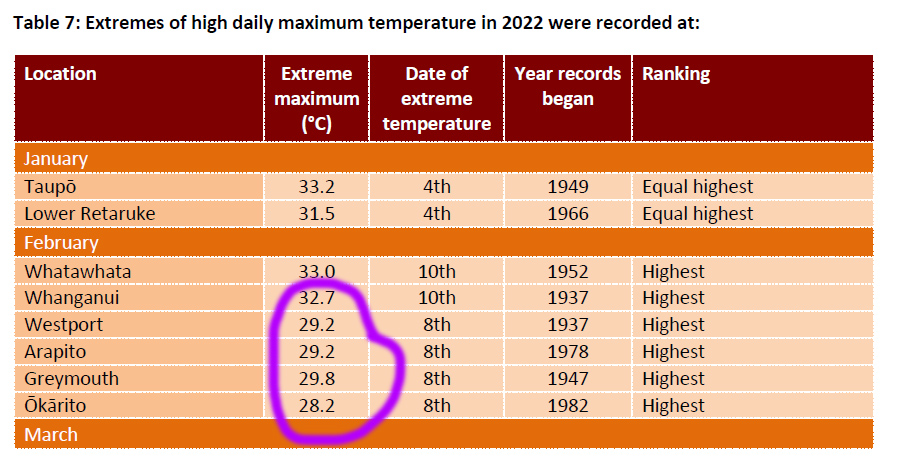Healthy goals
Claire Morrow seems to have been given some Tony Robbins CDs for Christmas
2007, Year of the Car. I know, I know, it’s not very United Nations; in 2007 I plan to in-crease my ecological footprint. I have been telling everyone (for most of 2006) about my new year’s resolution. I have a small page in the back of my to-do book that lists the indi-vidual steps involved in learning to drive. Step one – purchase learner’s handbook (check). Step two – find said learner’s handbook (it’s in this house somewhere!), step three – get learner’s permit. Step four – if no progress has been made by the end of March, consider behavioral therapy…and so forth.
The most popular new year’s resolution is to get more exercise. About 60-70% of people make three or more resolutions. About 40% of people succeed, and maintain their success for more than two months on the first attempt. About 17% fail 6 or more times, but still achieve their goal in the end. So that should inspire you.
I am always somewhat surprised by people who don’t make new year’s resolutions – most people are just busy doing other things or have goals privately in place that they don’t feel the need to discuss at length, but there are two interesting sub-groups I have noticed. The “I’m so fine the way I am” group (may I suggest honest and searching appraisal as an appropriate goal for 2007) and the “I can’t change” group. The latter have things they reckon they would like to change but they couldn’t actually be bothered changing them. It’s like saying “I want to earn lots of money…but I don’t want to work for it”. Psychotherapy might be a good suggestion, or antidepressant medication. If you couldn’t be bothered changing it…stop complaining about it. C’mon. Get with – I detest this phrase – the programme.
Research has actually been done – repeatedly – showing that in spite of the gut scorn we might feel about the overly optimistic on New Year’s Day, new year’s resolutions are actu-ally a useful thing, and most people use them to improve their lives. A shock, I know. You decide you want to achieve something, then you do what you need to achieve it, and then – as if by magic – it’s achieved. Not as much is known about what divides those who don’t achieve their goals from those that do, but enough is known about what constitutes a good behavioral modification plan that broad outlines of what will be most likely to work can be offered. Do you have your pencils ready?
(many “New Years” resolutions are actually made around the end of January or beginning of February, when things are settling down after the silly – or flat out stupid – season)
You must have put some thought into what you want to achieve, and be fairly motivated to achieve it. It is no good declaring that you will quit smoking (because you know you should and are tired of being hassled) when in your heart of hearts you know you like smoking and want to keep smoking, but figure you can white knuckle it through a few weeks to teach the hassler a lesson, and then light back up when they’re not looking. That is acting, but it is not a realistic goal. In that case a realistic goal might be “I would like to smoke less, exercise more and be more assertive”. You are looking for something you want to achieve for your own sake.
You need realistic expectations. You don’t just learn to drive in January. Frankly, I will be lucky if I find the book in January. You can lose 10 kilos by February, but it will make you ill. Best aim for lose 1 or 2 kilos a month so I can wear a bikini next summer. Priorities again. I would like to lose 10 kilos, but I have other things I want more. Losing 10 kilos is not something I am highly motivated to do. Weight loss didn’t even make my list. A com-mon resolution is to spend more time studying or working (23%). Aside from the obvious question (why?) the next really good question is – where will this time come from? You can’t just make more (if only!). So more time studying is not going to be much use to you in the long term if you achieve it by sleeping less (although this is a common short term strategy, and very effective for some people, it’s not going to work long term). Likewise if your mission is to spend more time working, you might want to check with your kids before you start skipping soccer practice to analyse flow variables. Ideally, you would actually find a way to work or study so that you achieve more in the same time. Or you would like to have a flexible timetable that you stick to. Or you would rather study on the train than listen to your iPod on the train this year. You get the idea.
You need a plan. Well, not everyone does, some people just do it, as the slogan says. But the most effective goals (the ones that stick), tend to be better planned. You make a mini list of things you need to do to achieve your goal. Going out and buying the hand-book is a first step. It has a date attached to it (The goal does. I haven’t seen the hand-book in months so who knows what it has attached to it.) When you achieve that part, you move on to the next bit. You can’t overdo it to the extent that your first step is to order 5 or 6 books on reducing clutter. Ordering 5 or 6 books on reducing clutter does not reduce clutter. One book might, so long as you read it. Your goal needs to be very specific and have a date or series of dates attached to it. There is no need to quit smoking on January one. You can make quitting smoking your goal, and set a date to quit. Then you spend a few weeks preparing, then you quit. A goal of “be a better person” is hard to measure. Clarify what you mean. You might mean volunteer work or you might mean baking for the bake sale. You might mean you will stop throwing rocks at puppies. “Wear a bikini next year” isn’t specific enough, and you can’t measure it. Nothing to stop you. You mean “lose 1-3 kilos a month until I reach my goal weight of_____”
And of course the other 2 stalwarts – if at first you don’t succeed, try try try again. People should have a plan B (what to do when things go wrong – and there will be stumbling blocks, practically guaranteed) and get support if you need it. Including, of course, tell people your plan. So I’ll let you know how the driving goes.







